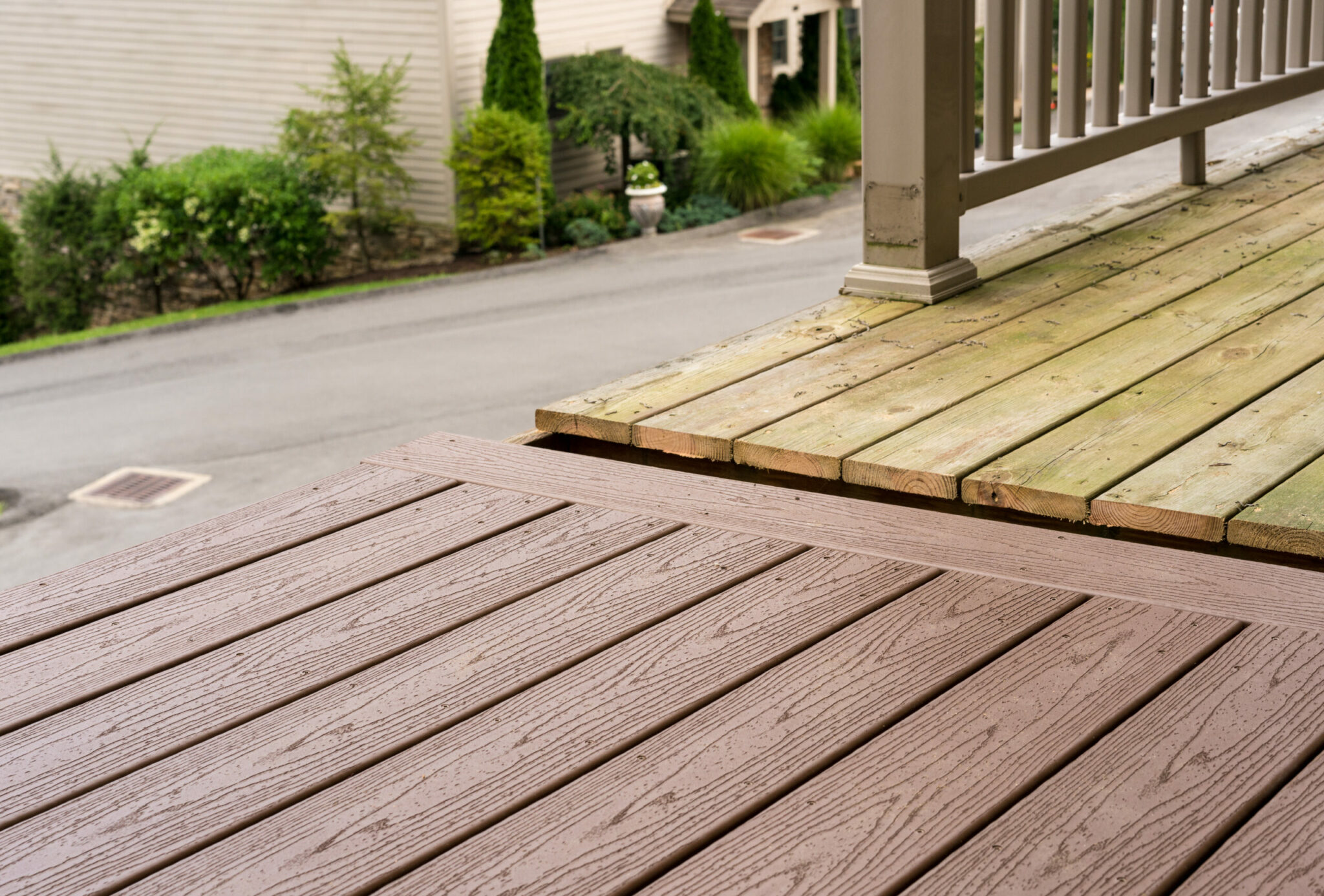Composite Decks: The Future of Outdoor Living

When it comes to creating a beautiful and durable outdoor space, composite decking has become a popular choice for homeowners and builders alike. Composite decks, made from a combination of wood fibers and synthetic materials, provide a stunning alternative to traditional wood decks, offering a host of benefits. This article explores the features, advantages, and potential drawbacks of composite decks to help you decide if they are the right choice for your next outdoor project.
What Are Composite Decks?
Composite decks are constructed using a mixture of natural wood fibers and plastic, resulting in a highly durable and low-maintenance material. Unlike traditional wood decking, composite decking doesn’t require the same level of upkeep. Composite materials are engineered to withstand weathering, resist mold and mildew, and maintain their appearance for longer periods.
The typical composition of composite decks includes wood fibers from recycled materials like sawdust, mixed with polymers such as polyethylene or PVC. These materials are then compressed to form solid boards that mimic the look and feel of wood but without many of its downsides.
Advantages of Composite Decking
1. Low Maintenance
One of the most significant advantages of composite decking is its low maintenance requirements. Unlike wood decks, which need regular staining, sealing, and sanding, composite decks require very little attention. They don’t need to be stained or painted, and they are resistant to fading, scratching, and cracking. A simple cleaning with soap and water is usually enough to keep them looking fresh.
2. Durability
Composite decks are incredibly durable and can withstand harsh weather conditions. They are highly resistant to rot, warping, and splintering, which are common issues with wood decks. Additionally, composite decking is resistant to termites and other pests that can damage traditional wooden decks.
3. Eco-Friendly
Many composite decking materials are made from recycled wood fibers and plastic, making them an environmentally friendly choice. By using recycled materials, you are helping to reduce waste and lower the demand for virgin wood, which can contribute to deforestation.
4. Aesthetically Pleasing
Composite decking comes in a wide range of colors, textures, and finishes, allowing homeowners to choose a style that fits their design preferences. Whether you prefer the natural look of wood or a more modern appearance, composite decking can mimic the look of wood while offering more color consistency and less maintenance.
5. Safety
Composite decking is often splinter-free and safer for families with children and pets. The smooth surface of composite boards reduces the risk of injuries caused by sharp edges or splinters, which can be a concern with wooden decks.
Potential Drawbacks of Composite Decking
While composite decks offer a variety of benefits, there are some drawbacks to consider before making your decision.
1. Initial Cost
The cost of installing a composite deck can be higher than that of a traditional wood deck. Composite materials are often more expensive than wood, and installation can be more labor-intensive. However, this higher upfront cost is typically offset over time by the reduced maintenance and longer lifespan of composite decks.
2. Heat Retention
One downside of composite decking is that it tends to absorb and retain heat, especially in direct sunlight. On hot days, the surface of a composite deck may become uncomfortably warm, making it less ideal for areas that receive intense sunlight. Some brands offer composite decking options designed to reduce heat retention, so it’s worth looking into these if this is a concern.
3. Expansion and Contraction
Composite decking can expand and contract with temperature fluctuations. While this is a minor issue, it’s something to keep in mind during installation. Proper spacing and the use of compatible fasteners can help mitigate the effects of expansion and contraction over time.
Conclusion
Composite decks offer a low-maintenance, durable, and environmentally friendly alternative to traditional wood decks. With their ability to withstand harsh weather conditions and resist fading and damage, composite decking is an excellent choice for homeowners looking to create a beautiful, long-lasting outdoor space. While they may have a higher initial cost, the long-term savings in maintenance and repairs make composite decks a wise investment for many.
